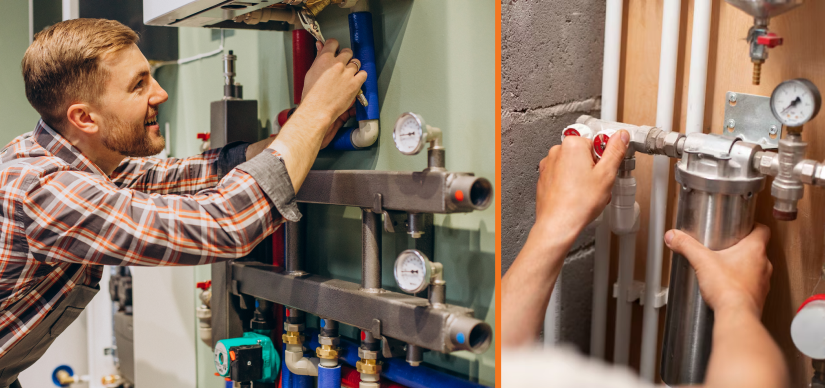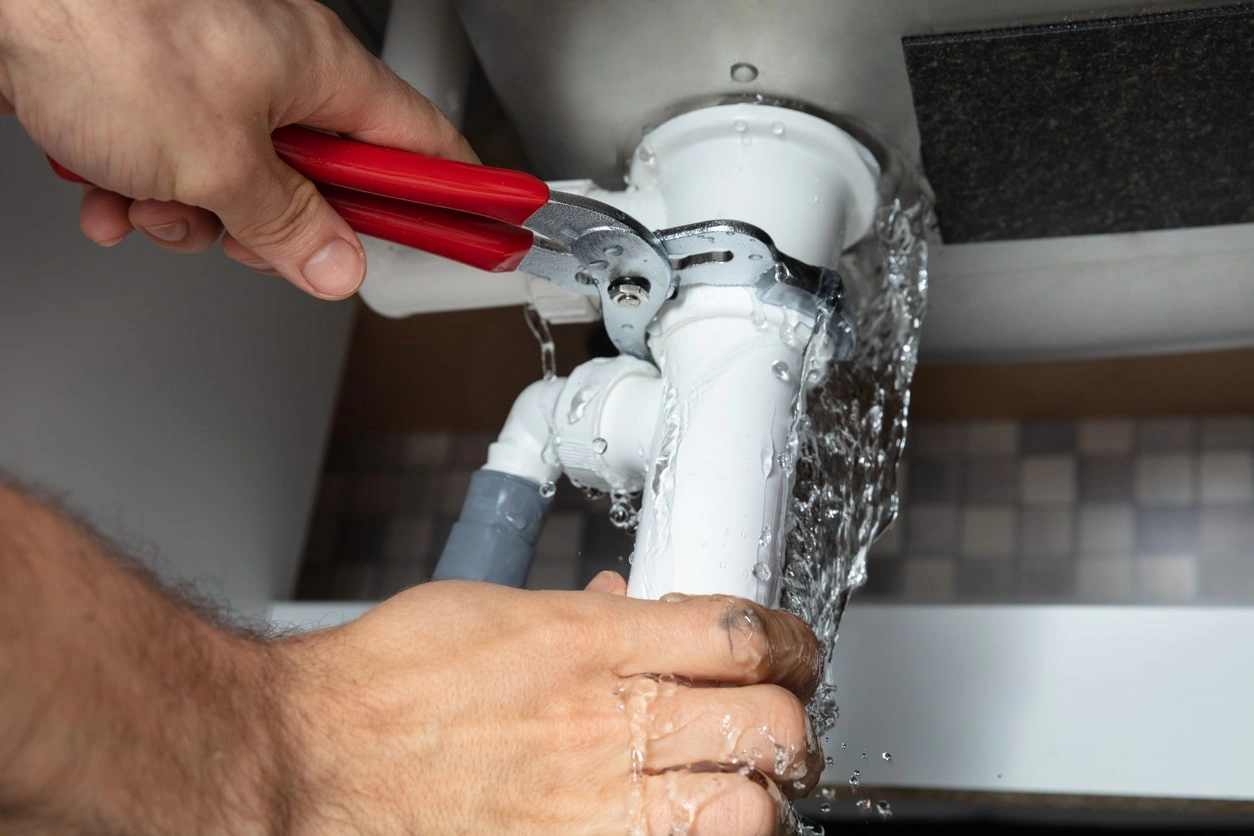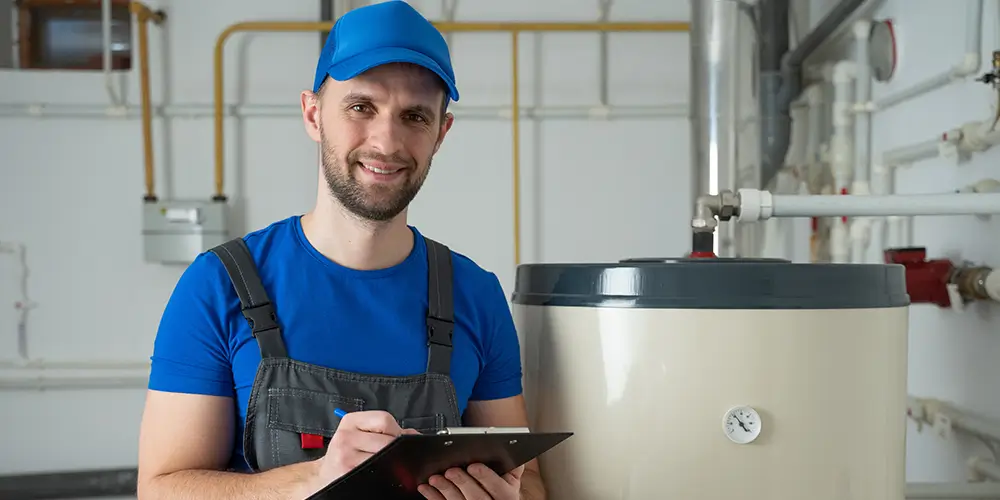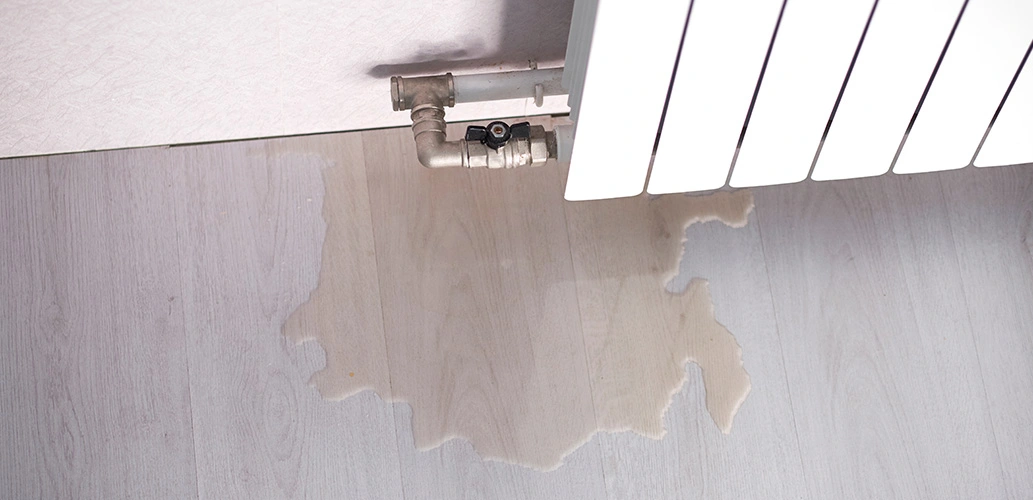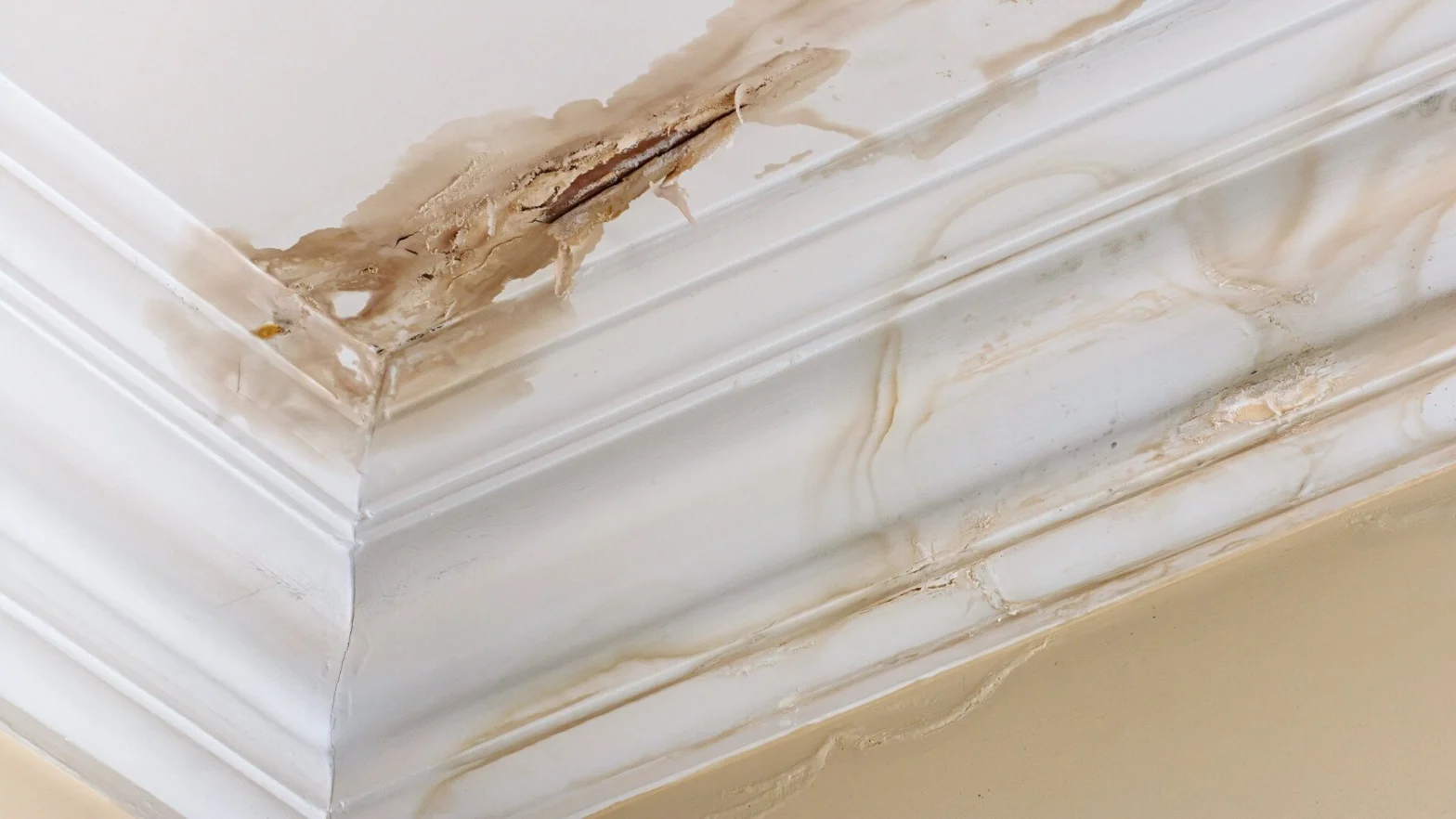Incorrectly Identifying Water Heater Problems
Water heaters quietly offer the luxury of hot water for various daily chores like showering and dishwashing. However, when these vital appliances break down, it can lead to significant frustration. Often, people make incorrect assumptions, leading to misdiagnosing water heater issues. One crucial aspect overlooked is the specific heat capacity of water. Understanding this scientific term is essential to grasp how water heaters operate and why minor temperature changes may not always indicate significant problems.
Now, let’s delve into the undisclosed factors that influence the availability and temperature of hot water.
Common Misconceptions Leading to Water Heater Misdiagnosis
When encountering unexpected water heater problems, it’s common to rely on existing knowledge and jump to conclusions. Yet certain misconceptions may arise, leading to incorrect assessments and unnecessary anxiety. Let’s examine these misunderstandings and their potential for misguidance:
1. Spec Heat of Water Myth
This misconception suggests that water heats up and cools down quickly. Minor temperature changes are often mistaken for major water heater issues.
The main idea is that the specific heat capacity of water denotes the energy required to raise its temperature by 1 degree Celsius. In another sense, different materials need different amounts of energy to change temperature.
Spec heat of water capacity: Water possesses a notably high specific heat capacity compared to other substances. Heating a big tank of water, like in your heater, needs plenty of energy.
Misinterpreting Fluctuations:
Due to this high-spec heat of water, minor changes in water temperature don’t necessarily indicate major issues with your water heater. If the water seems a bit cooler than usual, it could be due to:
Mixing with colder water: The warm water from the heater might blend with colder water in the pipes before reaching the tap.
Fluctuations in demand: When hot water is used in different parts of the house, the temperature in the tank might briefly drop before the heater begins to warm the water again.
Importance of Not Overreacting to Minor Changes:
Recognizing temperature changes is important, but it’s vital not to rush into conclusions over minor differences. If you face persistent problems like consistently lukewarm water or odd noises, it’s wise to consult a licensed plumber for a precise evaluation.
2. Ignoring the Specific Heat Capacity of water:
Many people are unaware of the specific heat capacity concept and its impact on water heaters. Not fully grasping this concept can cause us to mistake small temperature shifts for big issues.
Water’s High Specific Heat and What it Means:Water can hold onto heat, needing lots of energy to change its temperature a lot. So, slight temperature changes might not mean big problems with the heater.
Considering the right factors
Instead of just focusing on temperature changes, it’s crucial to take into account other factors that could contribute to these variations, such as:
Thermostat setting: Lowering the thermostat slightly can result in cooler water.
Water usage patterns: Increased usage of hot water can temporarily reduce the amount of heated water in the tank, resulting in cooler water until the heater refills it.
3. Focusing on the Wrong Symptoms:
Sometimes, people misinterpret certain symptoms as indicative of spec heat of water heater problems, leading to unnecessary worry and potentially even DIY attempts that could worsen the situation. Here are some common examples:
Experiencing lukewarm water from the tap: This might occur if the mixing valve malfunctions, improperly blending hot and cold water, or if pipes or fixtures get clogged, reducing water flow.
No hot water: Several reasons could lead to this, like blocked pipes, a tripped circuit breaker, a malfunctioning thermostat, or even an empty propane tank (if applicable).
Unusual sounds:Though noises can indicate issues like sediment buildup or a loose heating element, they could also result from unrelated plumbing problems, such as water pressure changes.
Significance of Proper Diagnosis
When facing spec heat of water heater issues, the temptation for quick fixes may arise. Accurately identifying problems crucially prevents unintended consequences, impacting finances, property, and safety.
1. Avoiding Wastage of Time and Money:
Misinterpreting symptoms and attempting DIY fixes based on incorrect assumptions can cause financial setbacks. You might:
Replace parts unnecessarily, spending money on components that weren’t the actual cause of the problem.
Introduce new complications, exacerbating existing issues or creating new ones, resulting in additional expenses.
Prevention of Issue Escalation:
Disregarding hidden issues leads to their worsening, possibly resulting in larger and more expensive repairs down the line. For example, not promptly fixing a small leak may cause extensive water damage, needing costly restoration.
Mitigating Safety Risks:
Certain issues with water heaters, such as gas leaks or faulty electrical parts, present significant safety risks if not addressed. These include:
Carbon monoxide poisoning from gas leaks is potentially fatal.
Electrical fires from faulty wiring endangering the household.
Scalding injuries from malfunctioning thermostats, especially concerning for vulnerable individuals.
By ensuring proper diagnosis, you protect yourself and your family from these dangers, preventing situations worse than the initial problem.
Tips for Accurate Diagnosis
When you face an unexpected issue with your spec heat of water, you may want to fix it immediately. However, accurately diagnosing the problem before attempting DIY repairs is essential to prevent wasting time and money and worsening the issue:
1. Seek Professional Help:To tackle such a complex problem, one must consult a skilled plumber first. Skilled plumbers have the knowledge, tools, and skills to precisely identify issues, suggest fixes, and ensure your water heater’s safety and efficiency.
2. Basic Troubleshooting (Do at your own risk):Homeowners can attempt basic troubleshooting steps themselves, although it’s suggested to seek a plumber’s advice.
Thermostat: Confirm the thermostat is set to the desired temperature. A lower setting might explain cooler water.
Circuit Breaker: If your water heater is electric, ensure the circuit breaker hasn’t tripped. Reset it if necessary because a tripped breaker could be the reason for no hot water.
Inspect for Leaks: Examine the water heater tank and nearby pipes for any visible leaks. Leaks suggest various issues and should be promptly fixed.
Important Note: Remember, the above steps are just for simple problem-solving. If you find anything confusing or if there are leaks, it’s best to talk to a plumber to make sure your water heater is safe and works well.
Conclusion:
While the temptation to diagnose water heater issues based on surface-level symptoms might be strong, understanding the underlying science, like the specific heat capacity of water, paints a clearer picture. Comprehending the intricacies involved allows us to move beyond surface-level observations and appreciate the importance of professional assessment.
While the temptation to diagnose water heater issues based on surface-level symptoms might be strong, understanding the underlying science, like the specific heat capacity of water, paints a clearer picture. Comprehending the intricacies involved allows us to move beyond surface-level observations and appreciate the importance of professional assessment.
Always prioritize accurate diagnosis for your water heater’s peak performance. Don’t hesitate to seek professional assistance for any concerns. By embracing a science-informed approach and prioritizing expert guidance, you can ensure a continuous flow of hot water without the hassle of misdiagnosis and unnecessary complications.


